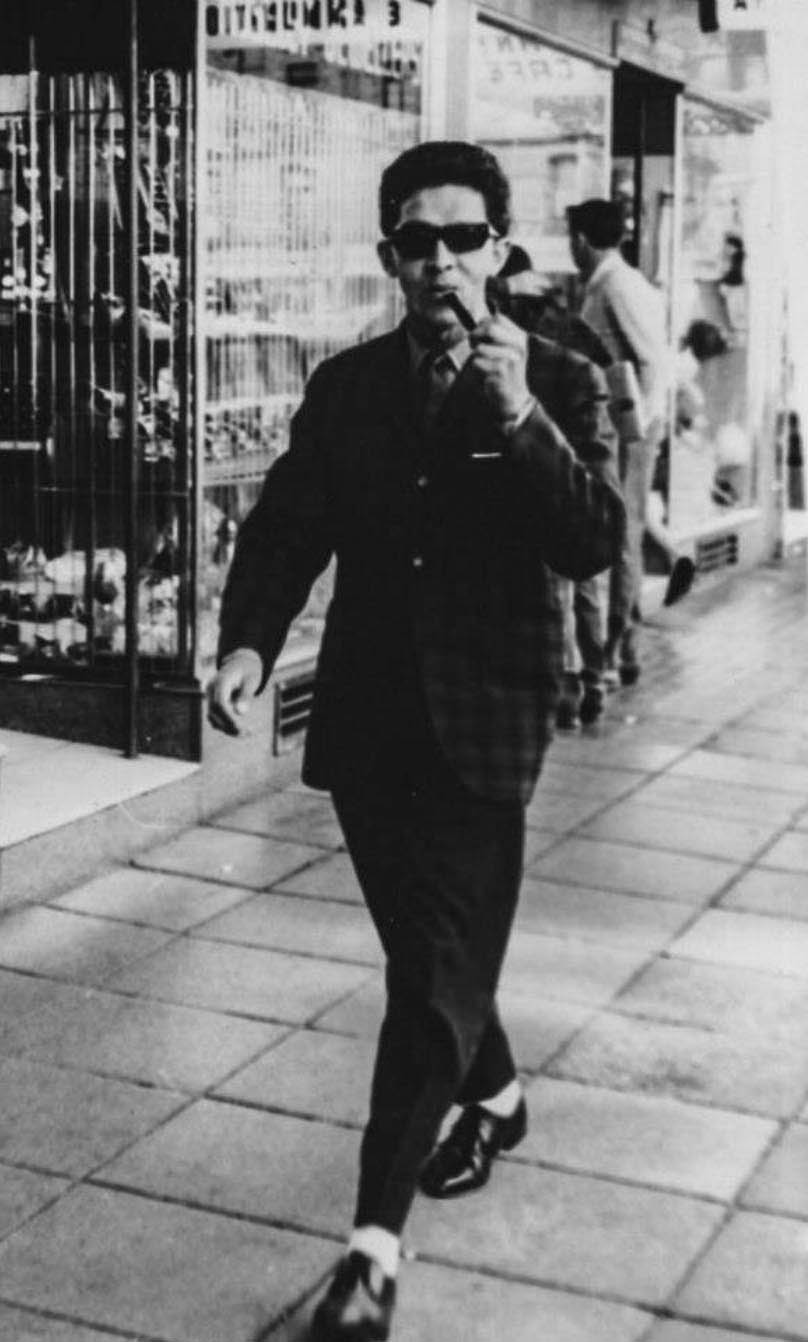Justice delayed: Imtiaz Cajee wrote to the National Prosecuting Authority 14 years ago asking it to investigate the death of his uncle, Ahmed Timol, in police custody in 1971. (Delwyn Verasamy)
The trial of a man involved in the killing of anti-apartheid activist Ahmed Timol has yet to begin but, when it does, the state will rely on circumstantial evidence to argue that former Security Branch clerk João “Jan” Rodrigues was involved in the premeditated murder of Timol, and even his torture.
When Timol’s nephew, Imtiaz Cajee, approached the National Prosecuting Authority in 2004 to investigate the death of his uncle in police custody in 1971, he was told that the NPA had produced “negative results” in finding new evidence and the matter would be dropped.
It has been 14 years since Cajee wrote that letter. In that time, the family, working with a team of private investigators and lawyers, found enough evidence to motivate a reopened inquest into Timol’s death. The inquest found last year that the young South African Communist Party activist had been murdered by the security police.
Rodrigues now faces prison time for premeditated murder and defeating the ends of justice. At 79, he is the last surviving policeman from a cohort of security cops who are believed to have tortured Timol and covered up the truth about his killing.
The Hawks’ Captain Frans Ngwako Mathipa has set out the version of events that the state could argue when the trial commences. Mathipa, in an affidavit that was submitted during Rodrigue’s bail application, says evidence from his own investigations show that Rodrigues and two other policemen, Johannes Hendrik Gloy and Johannes Zacharias van Niekerk, were involved in Timol’s torture and death.
“The accused, Gloy and Van Niekerk, tortured and assaulted the deceased. Prior to his death, and whilst in their custody and under their care, the deceased sustained multiple bruises and fractures, including and not limited to inter alia the nasal bone, left orbital
ramus, right inferior orbital ramus fractures of the left and upper jaw, an isolated depressed skull fracture, extensive contusions on the right leg and a dislocated left an[k]le,” Mathipa said in his affidavit.
The injuries were detailed in the testimony of Dr Shakeera Holland, a forensic pathologist, at the reopened inquest into Timol’s death. In her statement, she said Timol sustained these injuries while in police custody.
The medical evidence provided by Holland and the testimonies of other expert witnesses who appeared before the reopened inquest will form some of the circumstantial evidence the state will use to argue that the security police pushed or threw Timol from the 10th floor of John Vorster Square (now known as Johannesburg Central police station) or the roof of the building after they had tortured him for four days.
Mathipa’s affidavit also refers extensively to Dr Salim Essop, who was arrested with Timol. Essop was admitted to hospital after his police interrogators had beaten him into a coma. “During his period of detention from 23 October 1971 until 26 October 1971, Essop was tortured and severely assaulted by members of the Security Branch at John Vorster Square police station.
“On 26 October 1971, Essop was hospitalised in a comatose state, as a result of assault and torture on him by members of the Security Branch,” Mathipa says.
Timol was killed on October 27. Members of Timol family’s legal team have previously argued that, if the police tortured Essop then it would follow that they would have tortured Timol, who was considered by the regime to be a “big fish” in the underground movement.
 Ahmed Timol (ahmedtimol.co.za)
Ahmed Timol (ahmedtimol.co.za)
Rodrigues, who has confessed to being the last person to see Timol alive, will file an application for a permanent stay of proceedings on Friday. It is set to be heard on Monday. His attorney, Ben Minnaar, has refuted claims that Rodrigues is trying to delay the trial, saying his client is eager to see a resolution to the matter.
“That’s been our stance from the beginning. We want it to be finalised as soon as possible. We have got no instructions to delay the matter,” he said. Sifiso Khumalo, the state prosecutor on the case, accused Rodrigues of drawing out the pre-trial process to avoid trial. “It’s all part of delay tactics,” he said.
If the trial proceeds, the Timol case will set a precedent. The NPA has failed to prosecute cases in which perpetrators of crimes did not receive amnesty from the Truth and Reconciliation (TRC), arguing that there was no new evidence.
An internal NPA memorandum dated November 29 2006 is indicative of this. It was written by the NPA TRC task-team convenor, Silas Ramaite, and informs the national director of public prosecutions Vusi Pikoli that the NPA’s investigation into Black Consciousness Movement leader Steve Biko’s death has been dropped.
Ramaite wrote: “The DPP [director of public prosecutions]: Eastern Cape had recommended that no prosecution be instituted due to a lack of evidence.
“It was established that all the doctors who had treated the deceased were dead, except for the chief state pathologist, who, when consulted, conceded that he could not exclude that the injury to the deceased’s head could have been accidentally caused.”
Ramaite is now the acting national director of public prosecutions.
The Timol family has applied pressure on the NPA to pursue the case, but it will be up to the courts to decide whether Rodrigues will be granted a permanent stay of prosecution. The case has now been postponed to October 22.
“Ironically, it was on October 22 1971 that my uncle was actually detained‚” Cajee said. “We are still waiting for court proceedings to commence.”